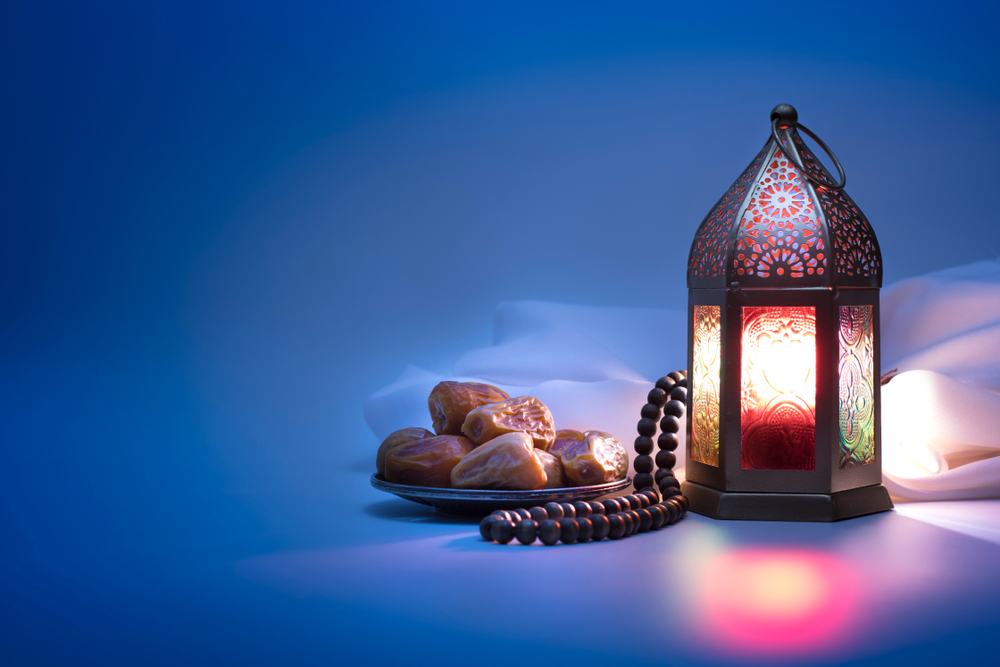By Editorial Staff
Ramadan is the ninth month of the Islamic calendar and is a time when 1.3 billion Muslims around the world abstain from consuming food and water from the break of dawn to the sunset.
Muslims, all over the world, heartily welcome Ramadan and believe that it is a season of worship, righteousness, sincerity and inner and outer peace. Not only Muslims love fasting in Ramadan, but a lot of non-Muslims also admired fasting in Ramadan in spite of all that it involves of hardship, hunger and thirst.
In this article, we quote some of the stories of non-Muslims who decided to share with Muslims the worship of fasting and enjoy its meanings of mutual tolerance and peace. Here are some of these stories:
Natalie fasts Ramadan for the 9th year
On her account on LinkedIn, Natalie Williamson wrote, “Ramadan Kareem. I am in my 9th year of fasting. Although I am not Muslim, every year I fast as a mark of respect for the country that has become my home and for my Muslim brothers and sisters who I am proud to call family. May Allah grant you and your families happiness and accept your month of fasting! Amen.”[1]
What happens when you practice Ramadan as a non-Muslim?
In high school, one of my best friends was Muslim. So at a young age, I experienced second-hand a culture that observed customs I would have otherwise been oblivious to. This was most obvious every Ramadan, when my friend, Raza, would join us at our lunch table, but not eat. He skipped soccer practice, too, because he could not drink water. And, though we were relentlessly cruel to his cultural differences — as high school boys tend to be — I admired his commitment to the traditions he was born into, even though he never expressed any personal love of Islam.
I always thought it would be an interesting experiment to try Ramadan with him. I was impressed that he had the will power to make it through a typical day of high school, extra-curricular activities and all, without passing out or caving in to a snack or drink of water. How could he do it? At that young age, I suspected that it was nothing short of impossible. And indeed, I didn’t push myself to try the ritual until this year…
Just as I wanted to try Ramadan to see what Muslims experience, fasting itself, I read, is a way to understand what the poor experience every day. That is, that they don’t know when their next meal is coming. Hunger, a true hunger, which I have not known since I was young, if ever, is something unfortunately that they know well. Ramadan is a time that asks you not just to fast, but to give to the poor and be respectful…
I am convinced that the world will be a better place if only we practice various forms of empathy. This requires us to take it upon ourselves to research and learn about traditions and viewpoints which are practiced and yet foreign to us. It asks that we see the world in others’ eyes, from time to time. And, like travel, perhaps experiencing Ramadan as a non-Muslim can be just as rewarding.[2]
Non-Muslim UAE expat tries Ramadan fasting for the first time
 Says Sheng, “My mother is Christian and my father is a Buddhist, but they gave me the freedom to find my own true self, whether to be a Catholic, a Buddhist or a Muslim.” He noted that Ramadan would provide him with a great opportunity to experience what the millions of other Muslims in the UAE do.
Says Sheng, “My mother is Christian and my father is a Buddhist, but they gave me the freedom to find my own true self, whether to be a Catholic, a Buddhist or a Muslim.” He noted that Ramadan would provide him with a great opportunity to experience what the millions of other Muslims in the UAE do.
Sheng also enjoys the iftar hour, not only because he can finally devour the Emirati dish harees that he really loves, but simply because the act of having iftar with other people allows him and those he cares about to come together, despite cultural or religious differences. “I love sitting with my employers at the majlis (meeting room) and ending my fast with them. We come together to appreciate this meal that we receive. The last ten minutes before iftar time are special, because we are all in the majlis, helping each other prepare the table to share the food later.”
He also noted that Ramadan is not just about fasting, but also about providing a helpful hand to those in need. Simple gestures such as showing respect and kindness, contributing to charities, praying together, as well as sharing food with the community are what Ramadan is all about.
“Even though I am not born Muslim, I decided to fast because I want to understand how it feels. After all, you never know what people are going through unless you share their experience.”[3]
This Ramadan, I’m fasting with my Muslim boyfriend
Many people who are not Muslim have also opted to participate in the fast because they want to show solidarity with Muslim loved ones and/or they want to use the time for their own personal reflections, commitments, and cleansing.
I woke up earlier that morning, before sunrise, and had a bit to eat. My research told me that loading up on a heavy meal would be counterproductive. As the day progressed, I thought to myself, “What have I gotten myself into??” I was so tempted to “cheat”; I am not Muslim so it wasn’t like I’d be breaking any rules or anything. Every time I thought about giving up and just eating something, though, I thought about what kind of statement that would make about my interest in him and my respect for him and his values. Who would I be if I couldn’t even abstain from eating and drinking for ONE day, knowing it was important for him to do it for a whole month?
In that one day of fasting, I learned a lot about myself, particularly about my reliance upon food to fill spaces, emotionally and timely. I eat when I’m bored. I eat when I think I should. I eat things I know I shouldn’t. I throw out a lot of food. I take for granted that food is always available to me. I also learned a bit about my patience and how quickly I move on from one thing to the next, especially when I grow incredibly bored or exasperatingly frustrated with it. That day tested my willpower, my patience, and my commitment to things greater than me and I learned that I have greater capacity than previously imagined. Ramadan Mubarak![4]
These are some of the inspiring stories that show us the impacts of the ritual of fasting, even on non-Muslims, which prove that all that Allah has legislated is full of mercy and benefit for people, both in this world and the hereafter.
____________________
Sources:
[1] LinkedIn
[2] Medium.com
[3] Khaleejtimes.com
[4] Blogher.com
[opic_orginalurl]



